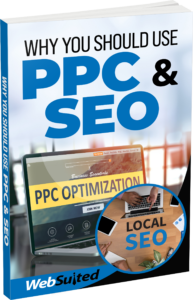Mastering the Digital Spotlight: Navigating Paid vs Organic Search Strategies
Navigating the intricate world of Google search, businesses often find themselves confronted with a pressing question: what is the difference between paid and organic search results? Understanding this distinction is pivotal for anyone looking to harness the true potential of search engine marketing.
Unpacking Search Marketing: Why is it Essential?
Search marketing, frequently labeled as SEM, revolves around enhancing a website’s visibility on search engine results. It’s a blend of two pivotal approaches: search engine optimization (SEO) and pay-per-click (PPC) advertising.
For businesses in the modern digital era, SEM is not just beneficial—it’s indispensable. Through SEO, your website can rise in organic rankings, ensuring better visibility, more organic traffic, and a higher influx of potential customers. PPC, on the other hand, offers the luxury of placing targeted ads, ensuring your brand grabs immediate attention.
Together, SEO and PPC form a dynamic duo. They magnify your digital footprint, steer traffic towards your website, amplify brand awareness, and boost conversion rates and revenue.
Paid Search vs Organic Search: A Deep Dive
Paid Search Results: Google’s topmost section often showcases paid results or PPC ads. The cost structure is pay-per-click, and this can be as trivial as a penny or as hefty as several hundred dollars.
The allure of PPC is its immediacy—your brand gets instant limelight. However, it’s essential to be wary of the downsides, namely the costs and its transitory nature. It’s worth noting that Google has adapted its PPC format to be more mobile-centric. An exception is Google Shopping—a platform where merchants pay for product listings.
Organic Search Results: These are the results that manifest without any direct fiscal transaction with Google. They’re the culmination of diligent SEO work. With organic search, costs typically inversely mirror PPC. While broad terms might be pricey, specific keywords backed by user intent often promise better conversions and ROI.
Benefits and Disadvantages of Paid and Organic Search
Organic Search:
- Benefits: Financially savvy, achieves cumulative results, reinforces credibility, magnetizes relevant users, and synergizes with other marketing channels.
- Disadvantages: Needs consistent maintenance, results manifest over time, vies for prime SERP real estate, and mandates SEO proficiency.
Paid Search:
- Benefits: Delivers on-the-spot results, feeds SEO strategies with valuable keyword insights, boasts commendable ROI, zeroes in on purchase-ready users, furnishes actionable insights, aligns with other marketing methods, and accommodates diverse budgets.
- Disadvantages: Entails continuous monitoring, has upfront costs, produces short-lived results, and necessitates a nuanced skill set.
Deciding Between Paid and Organic: Which Path to Traverse?
Balancing between organic and paid strategies is the key to unlocking the full potential of search marketing. Consider spearheading your efforts with SEO. While awaiting organic rankings to bloom, inject some funds into PPC, especially when targeting expansive, competitive keywords.
Remember, both methods demand dedication, strategic thinking, and judicious financial outlay. It’s vital to keep a pulse on your strategies, measuring outcomes, and recalibrating as necessary.
For businesses seeking expertise in harmonizing both realms, aligning with a reputable SEO agency like WebSuited is paramount. If you’re seeking guidance, strategies, or collaborations for your SEO endeavors, WebSuited is here to light the way. Dive into our comprehensive suite of services today!










